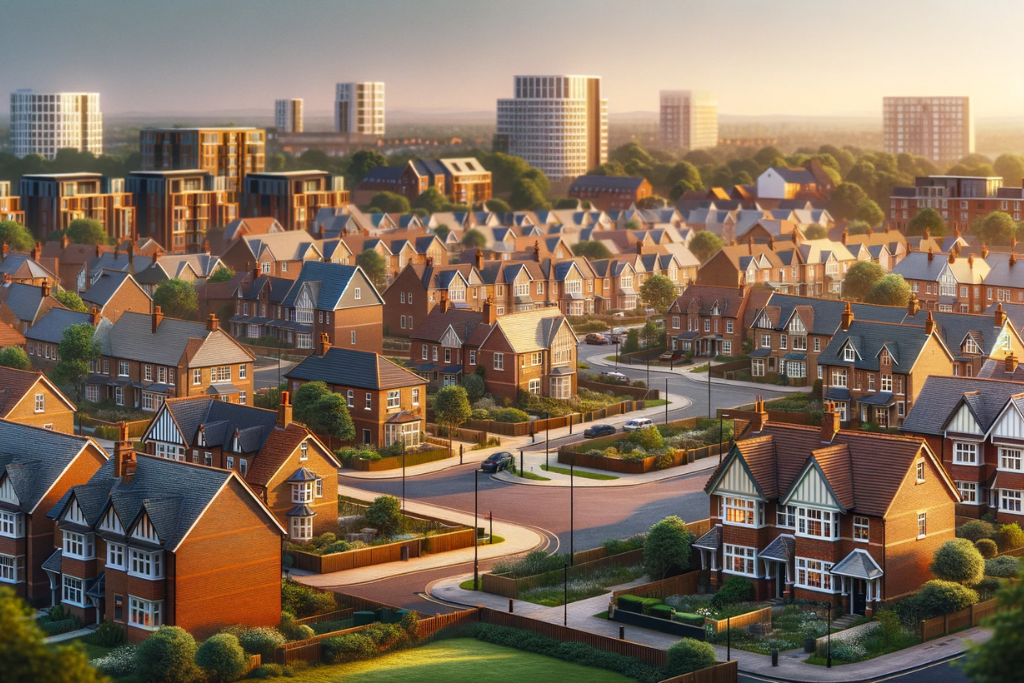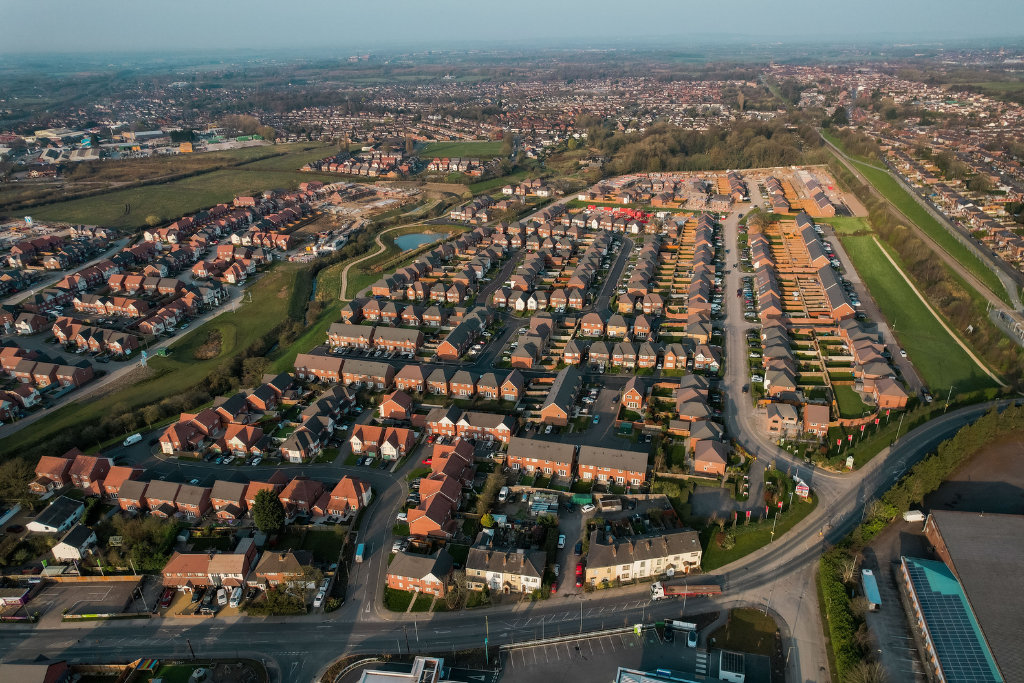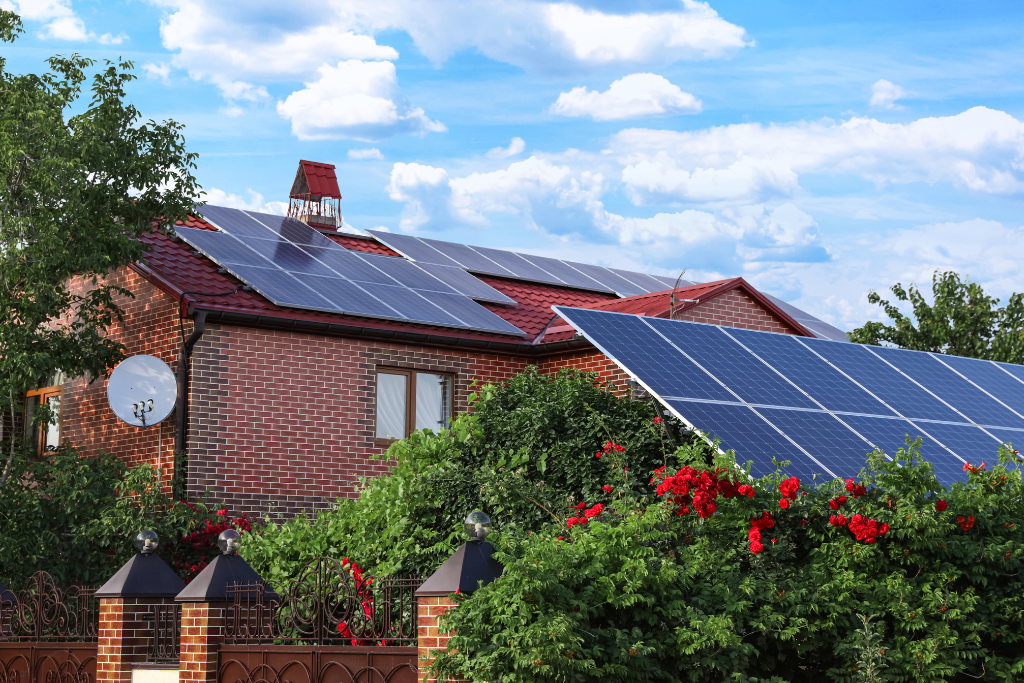
What is a house guide price & should it be trusted 2024 UK
A house guide price is used as a marketing tool for sellers and estate agents.

Table of Contents
As we start in 2024, the UK housing market remains a labyrinth filled with evolving terms and trends, among which the ‘house guide price’ emerges as an important instrument for both buyers and sellers.
This article aims to delve deep into the concept of house guide prices, examining their role and impact from the perspective of both sellers and buyers. We will explore how these property guide prices are determined, the factors influencing them and the strategic considerations behind their use.
Additionally, the article will offer valuable insights into the current trends of the housing market, providing readers with a well-rounded understanding of how guide prices fit into the broader landscape of property buying and selling in 2024.
Whether you’re a first-time homebuyer, a seasoned investor or a seller looking to maximise your property’s value, this discussion will equip you with the knowledge and tools to navigate the UK housing market with confidence.
What does house guide price mean?
A house guide price, fundamentally, represents an estimated value set by the seller, vendor or their estate agent. This estimation indicates the minimum price that the seller is willing to accept for their property.
The property guide price serves as a starting point for potential buyers to make offers. The guide price can be presented either as a specific amount or a price range, offering an initial idea of what the seller expects.
What is guide price?
A guide price, often encountered in house markets, serves as an estimated selling price for a property. While it offers a useful starting point, it’s important to recognise that properties seldom sell for their exact guide price.
The final sale price is influenced by various factors, primarily the offers received by the seller. These offers can vary, falling either above or below the guided price, also known as the asking price.
The guide price acts as a benchmark for initiating negotiations with the seller. Buyers usually have the liberty to propose offers lower than the guide price. However, it’s important to balance this approach; excessively low offers may be outright rejected by the seller.
Market conditions and competition from other potential buyers significantly impact the success of any offer. While there is no one-size-fits-all rile, many property experts recommend starting with an offer that is 5% to 10% lower than the guide price.
In some cases, sellers might entertain offers up to 15% lower, but such proposals can be perceived as overly bold or even disrespectful, risking a negative impression.
A key factor to consider before making a lower offer is the duration for which the property has been on the market. Properties listed for sale beyond 90 days may indicate a higher openness from agents and sellers to consider lower offers. This can be due to various reasons, such as a pressing need to sell or fewer inquiries than expected.
What is a house guide price at auction?
When it comes to properties being sold at auction, the price guide for houses takes on a slightly different role. It is closely linked to the reserve price, which is the minimum price agreed upon between the auctioneer and the vendor.
The house guide price at an auction is either the amount at which the seller’s reserve price is set or the starting point for bidding. Importantly, the reserve price is usually undisclosed, but the guide price can provide a reasonable indication of where the reserve is likely set.
How accurate are guide prices at property auctions?
The accuracy of a guide price can be influenced by the current state of the property market. In a strong market, properties might sell for significantly higher than the guide price, whereas in a slower market, the final sale price might be closer to or even below the guide price.
The precision of a property price guide also hinges on the expertise of the valuer. A well-experienced valuer or auctioneer with a deep understanding of the local market can set a more accurate price guide.
Guide prices are often set with the intention of attracting interest and encouraging bidding. Therefore, they might be set at a lower range to create competitive bidding, which can lead to a final sale price that is much higher.
Unique or unusual properties might have less predictable guide prices due to the difficulty in comparing them with other sales in the area. If the seller is looking for a quick sale, the guide price might be set lower to attract more interest. Conversely, if there is no urgency to sell the guide price might be closer to the seller’s ideal sale price.
How is a price guide for houses set?
The method of setting a price guide for houses varies depending on the selling method. For sales through a high street estate agent, it is determined based on the minimum price the seller hopes to achieve, combined with the agent’s knowledge and research of current property values in the area.
The price guide for houses is a tool used by sellers and estate agents to initiate negotiations and attract potential buyers. It reflects a combination of the seller’s expectations and market realities, though it is not a definitive predictor of the final selling price.
In contrast, auctioned properties have their guide price determined post the setting of a reserve price by the seller, influenced by factors like the seller’s urgency to sell and their financial needs.
How is an estate agent guide price set on the open market?
When setting a price guide for houses for a property being sold on the open market, there are several factors which are considered. The primary determinant is the minimum price the seller hopes to achieve from the sale.
This figure is not randomly chosen; instead it’s carefully calculated based on the agent’s knowledge and research of the current property values in the area.
The agent assesses comparable properties, current market trends and the unique attributes of the property to arrive at a realistic yet attractive house guide price. This guide price aims to generate interest among potential buyers while still aligning with the seller’s financial expectations.
How is a house guide price set at an auction house?
In the context of auctioned properties, the process of setting an auction guide price involves a different approach. First, the auctioneer conducts a valuation of the property to determine its market value.
Based on this valuation, the seller then sets a reserve price – the lowest price they are willing to accept. This reserve price is influenced by factors such as the seller’s urgency to sell, their financial needs and the property’s valuation.
The house guide price is then determined with respect to the reserve price. It usually falls within a specific range, often within 10% of the reserve price. This is to ensure a fair and realistic starting point for the auction while maintaining the seller’s interests.
The guide, therefore, acts as an indicator of where bidding might start and gives potential buyers a ballpark figure to consider before participating in the auction.
Are there any guidelines for guide prices?
In 2014, the Advertising Standards Authority established guidelines to regulate how guide prices are set. These guidelines stipulate that the guide price must either indicate a range or single price figure within 10% of the reserve price.
Additionally the guide price cannot be more than 10% lower than the seller’s reserve price. These rules help ensure transparency and fairness in auctions, providing potential buyers with a more accurate expectation of the reserve price.
What’s the difference between house guide price and asking price?
The guide price, as an estimated value range, is used to indicate the minimum the seller is willing to accept and is often flexible. In contrast, the asking price is a more definitive figure representing what the seller specifically wants for their property.
The asking price is less about initiating interest and more about stating the seller’s firm valuation often set after considering the property’s condition, market conditions and comparable sales.
Both guide prices and asking prices are essential in the house selling process. House guide prices are instrumental in generating interest and fostering competitive bidding, while asking prices provide clear and specific valuations from the sellers to the buyers.
How much do houses sell for compared to asking price?
Based on data provided by Hometrack, Zoopla’s data business, there’s a notable trend of houses selling for less than the original asking price in the current market. On average, sellers are accepting offers that are approximately 3.8% below their initial asking price.
Furthermore there’s been an increase in the number of sellers agreeing to even larger discounts. Over two-fifths (42%) of sellers are accepting offers more than 5% below the asking price, a figure that represents the highest level of such discounts since 2018, a period when annual UK house price growth was just 1%.
Additionally, over one in six sellers are accepting discounts of more than 10% below the asking price. This trend suggests that buyers are negotiating harder, and sellers are increasingly willing to lower their expectations to close deals, reflecting a shift in the market dynamics towards buyers.
Should you follow the guide price on property or decide the price for yourself?
Sellers need to balance their own financial expectations with the realities of the market. While it’s natural to aim for the highest possible return on investment, being realistic about the property’s market value is essential.
Overpricing can lead to a stale property listing, whereas a competitive house guide price can create more interest and potentially lead to better offers, especially if it triggers a bidding war in a seller’s market.
Sellers and vendors should be prepared for negotiations. The guide price is a starting point and buyers may offer less than this amount. It’s important to understand the range of acceptable offers before listing the property.
Being too rigid can result in missed opportunities, but understanding the lowest acceptable offer helps in making informed decisions during negotiations.
Sellers should also consider the buyers’ perspective. Buyers are likely to conduct their own research and valuations. Therefore, a guide price that closely aligns with market valuations is more likely to be taken seriously by prospective buyers. Unrealistic property guide prices might be dismissed by savvy buyers, reducing the pool of potential buyers.
Can buyers offer lower than the guide price?
Yes, buyers can offer lower than the guide price, although the success of such offers depends on various factors, including market conditions and the seller’s circumstances.
The house guide price is essentially an invitation to begin negotiations, representing the seller’s initial expectation but not a fixed bottom line.
In a buyer’s market, where supply exceeds demand, sellers might be more included to consider offers below the guide price. Additionally, if a property has been on the market for an extended period, or if the seller is motivated to sell quickly due to personal circumstances, they may be more open to accepting lower offers.
However buyers should approach this thoughtfully, as excessively low offers might be dismissed outright or negatively impact the negotiation process.
What is the difference between guide price and ‘offers in excess of’?
The difference between a guide price and ‘offers in excess of’ lies primarily in the expectations they set for potential buyers. A guide price suggests an estimated range for starting point for negotiations, indicating the minimum amount the seller hopes to receive.
It’s often used to initiate interest and encourage offers, with room for negotiation up or down. On the other hand, ‘offers in excess of’ explicitly states that the seller expects offers to be higher than the specified amount.
This approach is usually employed when a seller anticipates strong interest in their property or believes market conditions favour a higher selling price. It sets a clear baseline above which all offers must fall, reducing the likelihood of lower bids and steering negotiations towards a higher price range.
Should you trust an estate agent guide price?
When considering whether to trust an estate agent guide price, it’s important to assess the credibility and reputation of the agent. Experienced and reputable estate agents usually have a good understanding of the local property market and can set guide prices that accurately reflect current market conditions.
They typically use their knowledge of recent sales, market demand, and specific property features to arrive at a guide price that’s realistic and competitive. However, it’s worth noting that estate agents might sometimes set guide prices to attract interest, possibly listing a slightly lower price to encourage more viewings and potential offers.
Despite the expertise of estate agents, it’s advisable for buyers and sellers to conduct their own independent research. This includes looking at comparable properties in the area, understanding current market trends, and assessing the specific attributes and condition of the property in question.
Independent research helps in forming a more indepth view of a property’s value, which can either corroborate or challenge the house guide price set by the agent.
It’s important to understand the motivations behind an estate agent guide price. Agents are usually motivated by the desire to make a sale, which can sometimes lead to setting more attractive (often lower) property guide prices to stimulate interest and competition among buyers.
Conversely, if representing a seller, an agent might set a higher guide price if they believe the market conditions or the property’s unique features justify it.
Can you trust an online estate agent?
When deciding whether to trust an estate agent guide price, considering the use of an online estate agent can offer a different perspective. Online estate agents have gained popularity due to several advantages they offer which can positively impact the reliability and approach towards house guide prices.
Here at The Property Selling Company, we are an online estate agents with a difference, we are completely honest and transparent in our process and will always try and get you the best price possible for your home.
You will benefit from using our service as we have access to extensive, data-driven market analysis tools, enabling us to set guide prices based on a wider range of data than a traditional estate agent.
This can include seeing national and local market trends, a broader spectrum of property comparisons and real time data analytics, leading to potentially more accurate and objective guide prices.
Want to get started? Click the button below!










